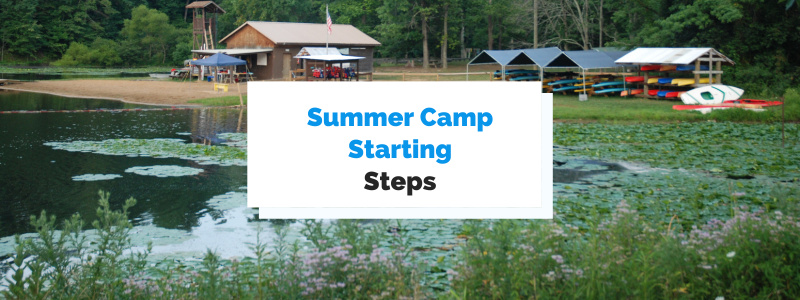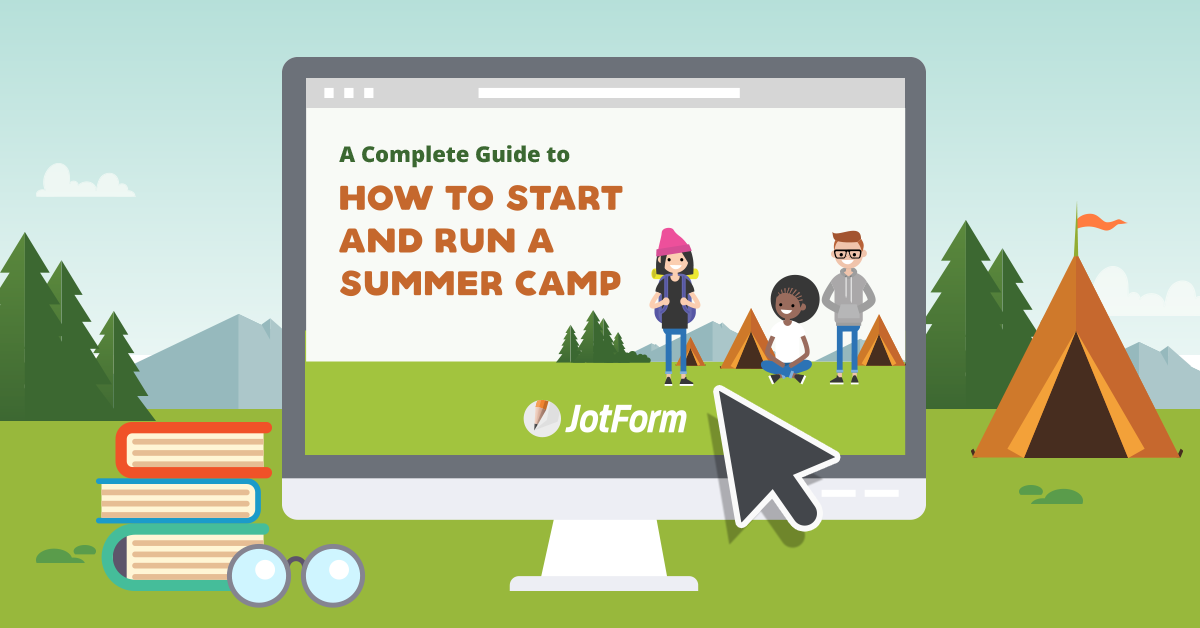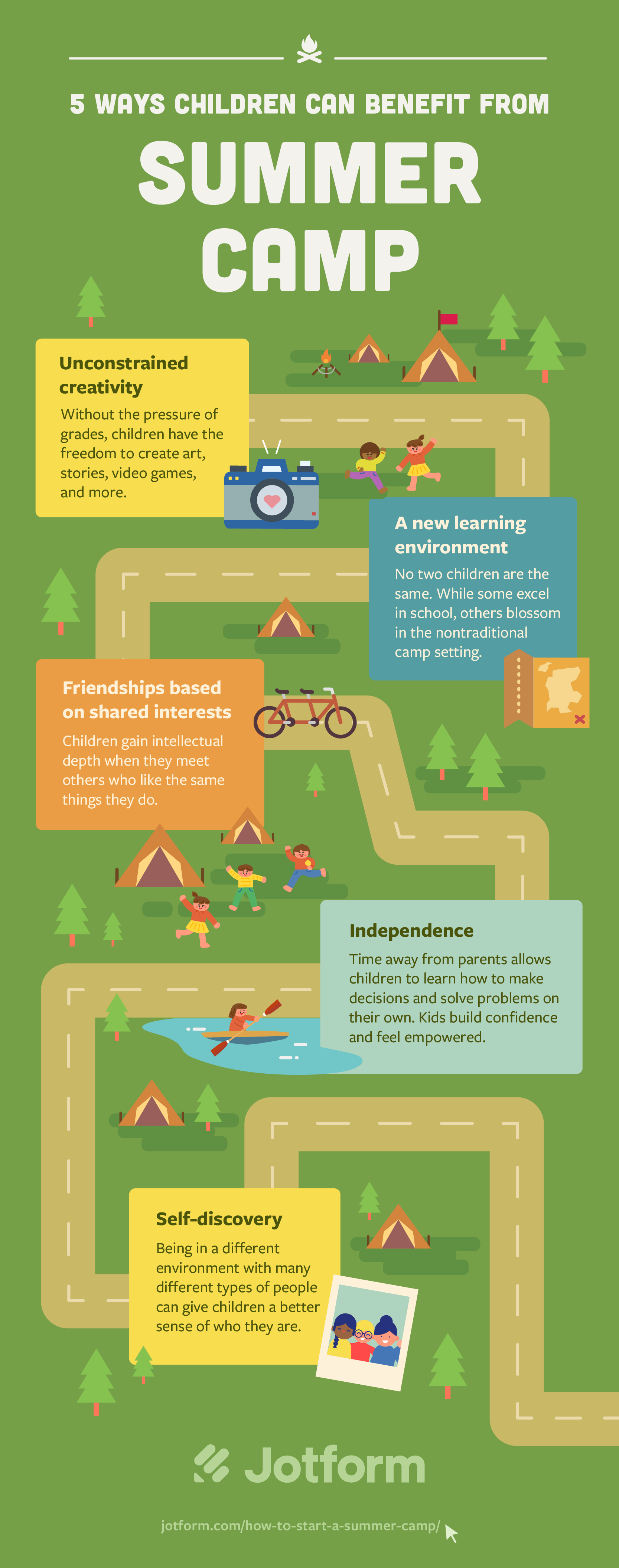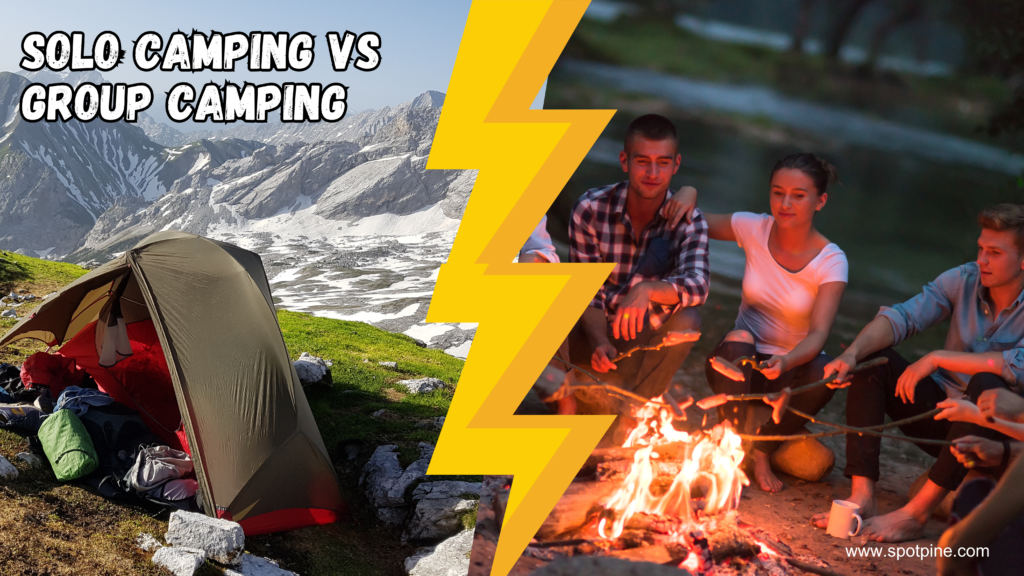To start a summer camp, you need to plan the activities and secure a suitable location. Then, recruit qualified staff.
Starting a summer camp can be an exciting venture. First, identify the theme or focus of your camp, such as sports, arts, or academics. This helps attract the right audience. Next, choose a safe and accessible location that offers the necessary facilities.
Hiring experienced and enthusiastic staff is crucial for providing a great experience for campers. Marketing the camp effectively through social media, local schools, and community centers will help you reach potential campers. Establish a clear registration process and ensure you comply with local regulations and safety standards. A well-organized plan will set the foundation for a successful summer camp.

Credit: www.regpacks.com
Introduction To Summer Camps
Starting a summer camp can be a rewarding venture. It offers kids a chance to learn, grow, and have fun. For entrepreneurs, it’s an opportunity to make a positive impact. Let’s explore what summer camps are and their benefits.
What Is A Summer Camp?
A summer camp is a program for children and teens. It typically runs during the summer months. Kids participate in various activities such as:
- Sports
- Arts and crafts
- Outdoor adventures
- Educational workshops
These activities foster learning and social skills. Camps can be day camps or overnight camps. Day camps have activities during the day. Overnight camps include staying at the camp for several days or weeks.
Benefits Of Running A Summer Camp
Running a summer camp has many benefits. First, it provides a steady income during summer. Parents pay fees for their kids to attend.
Second, it offers personal satisfaction. You help kids learn new skills. They make friends and have fun. This can be very rewarding.
Third, it builds community connections. Camps often partner with local businesses. This can lead to future opportunities. Here is a table summarizing the benefits:
| Benefit | Description |
|---|---|
| Steady Income | Fees from parents ensure a steady summer income. |
| Personal Satisfaction | Helping kids grow and have fun is rewarding. |
| Community Connections | Partnering with local businesses creates future opportunities. |
Overall, starting a summer camp can be a great venture. It is both profitable and fulfilling.
Planning Your Summer Camp
Planning your summer camp is the most important step. A well-planned camp ensures kids have fun and learn new skills. It also helps in managing the camp smoothly. Below are some key elements you should focus on.
Choosing A Theme
Selecting a theme is the first step. A theme helps in creating a cohesive experience. It also makes activities more exciting. Here are some popular themes:
- Adventure – Includes hiking, treasure hunts, and outdoor games.
- Science – Focuses on experiments, nature walks, and star gazing.
- Arts and Crafts – Involves painting, sculpting, and DIY projects.
- Sports – Features various sports, team games, and physical activities.
Choose a theme that matches your resources and the interests of the campers. A well-chosen theme keeps kids engaged and excited.
Deciding On Age Groups
Deciding on age groups is crucial. Different age groups have different needs and interests. Here is a basic guide:
| Age Group | Activities |
|---|---|
| 5-7 years | Simple crafts, basic sports, and storytelling. |
| 8-10 years | Intermediate crafts, team sports, and nature walks. |
| 11-13 years | Advanced crafts, adventure sports, and science projects. |
Plan activities according to the age group. This ensures that all kids have a great time. You can also mix age groups for certain activities. This encourages teamwork and learning from peers.
Location And Facilities
Starting a summer camp involves many steps. One important step is choosing the right location and facilities. The camp’s location can make or break its success. Facilities also play a key role in the camp experience. Let’s dive into the details of selecting the right venue and the essential facilities and equipment needed.
Selecting The Right Venue
Choosing the right venue is crucial. The location should be accessible yet remote enough for a camp feel. Consider the following factors:
- Proximity: The camp should be close to medical services and emergency help.
- Natural Beauty: Look for a place with beautiful landscapes and nature trails.
- Safety: Ensure the area is safe from natural hazards like floods.
- Space: There should be ample space for activities and cabins.
Essential Facilities And Equipment
Having the right facilities and equipment is equally important. Here are some must-haves:
| Facility | Importance |
|---|---|
| Cabins | Provide sleeping areas for campers. |
| Dining Hall | A place to serve meals and gather. |
| Bathrooms | Must be clean and accessible. |
| Activity Areas | Spaces for sports, crafts, and games. |
| Medical Center | For emergencies and health checks. |
Essential equipment is also needed. Here’s a list:
- Sports Gear: Balls, nets, and racquets.
- Craft Supplies: Paper, glue, and markers.
- First Aid Kits: For minor injuries and emergencies.
- Cooking Equipment: Stoves, pots, and pans.
- Cleaning Supplies: Brooms, mops, and detergents.

Credit: www.jotform.com
Staff Recruitment
Starting a summer camp requires careful planning, especially in Staff Recruitment. Finding the right people ensures a safe and fun environment for kids. Below are key steps for successful staff recruitment.
Hiring Qualified Staff
Begin by identifying the roles you need to fill. Common roles include:
- Camp Director
- Activity Leaders
- Camp Counselors
- Medical Staff
Create detailed job descriptions for each role. Advertise these positions on job boards, social media, and your camp’s website. Screen applicants based on their experience, skills, and passion for working with kids. Conduct interviews and check references.
Training And Orientation
Once you have hired your staff, provide comprehensive training. Training should cover:
- Camp Policies
- Safety Procedures
- First Aid Training
- Activity Planning
Conduct a thorough orientation session. Use this time to introduce staff to the camp facilities and each other. Team-building activities can help staff bond and work better together. Provide a handbook with all necessary information.
Below is a sample training schedule:
| Day | Activity |
|---|---|
| Day 1 | Introduction and Camp Policies |
| Day 2 | Safety Procedures and First Aid |
| Day 3 | Activity Planning and Team Building |
Staff recruitment is crucial for a successful summer camp. Hiring qualified staff and providing them with proper training ensures a safe and enjoyable experience for everyone.
Program Development
Creating a successful summer camp begins with strong program development. This involves careful planning and organizing. The aim is to deliver a memorable experience for the campers.
Activity Planning
Effective activity planning is crucial. Think about the interests of your campers. Include a mix of sports, arts, and educational activities.
- Sports: Soccer, basketball, swimming.
- Arts: Painting, crafts, drama.
- Education: Science experiments, nature walks, storytelling.
Balance your activities. Ensure they cater to different age groups and abilities. This keeps everyone engaged and happy.
Daily Schedules
Creating a daily schedule helps to keep the camp organized. It ensures that every minute is used wisely.
| Time | Activity |
|---|---|
| 8:00 AM | Breakfast |
| 9:00 AM | Morning activity (sports/art) |
| 12:00 PM | Lunch |
| 1:00 PM | Afternoon activity (education/nature walk) |
| 5:00 PM | Evening snack |
| 6:00 PM | Group games/free time |
Stick to the schedule. It provides structure and predictability for the campers. It also helps staff manage their time efficiently.

Credit: www.jotform.com
Marketing Your Camp
Marketing your summer camp is crucial for its success. Without proper marketing, parents may never hear about your camp. Below are some effective strategies to get the word out.
Creating A Marketing Plan
A well-thought-out marketing plan is essential. Start by identifying your target audience. Who are you trying to reach? Parents, schools, community centers?
Next, set clear objectives. Do you want to increase registration numbers? Raise awareness in a specific area? Your goals will guide your strategy.
Consider your budget. How much can you spend on marketing? Allocate funds wisely across different channels. Digital ads, print materials, and community events can all be effective.
Finally, create a timeline. Plan your campaigns around key dates. Early bird registration, open houses, and local fairs are great opportunities.
Utilizing Social Media
Social media is a powerful tool. Platforms like Facebook, Instagram, and Twitter can reach many people quickly.
Create a social media calendar. Plan out your posts in advance. This ensures consistent messaging.
Use eye-catching visuals. Photos and videos of happy campers can attract attention. Share testimonials from past campers and parents.
Engage with your audience. Respond to comments and messages promptly. Host live Q&A sessions to answer questions in real-time.
Run targeted ads. Social media platforms allow you to target specific demographics. This ensures your ads reach the right people.
| Social Media Platform | Best Use |
|---|---|
| Community Building, Ads | |
| Visual Content, Stories | |
| Real-Time Updates, Customer Service |
Registration And Fees
Starting a summer camp involves many steps. One of the most important is managing registration and fees. Proper planning ensures smooth operations and helps parents understand the costs. Let’s dive into the details.
Setting Up Registration
To set up registration, follow these steps:
- Create an Online Form: Use tools like Google Forms or JotForm.
- Gather Essential Information: Ask for names, ages, and emergency contacts.
- Include Medical Details: Note allergies and special needs.
- Set Deadlines: Specify the last date to register.
- Send Confirmations: Email parents to confirm registration.
Determining Camp Fees
Setting the right fee is crucial. It covers costs and attracts families. Consider these points:
- Calculate Costs: Include staff, food, activities, and materials.
- Research Competitors: Check fees of nearby camps.
- Offer Discounts: Provide early-bird or sibling discounts.
- Payment Plans: Allow parents to pay in installments.
Here’s a simple fee structure table:
| Duration | Cost | Discounts |
|---|---|---|
| 1 Week | $200 | 5% early-bird discount |
| 2 Weeks | $350 | 10% sibling discount |
| 4 Weeks | $600 | 15% early-bird discount |
Follow these steps for a smooth registration process. Set clear fees to ensure a successful summer camp.
Safety And Compliance
Starting a summer camp involves many responsibilities. Safety and compliance are critical. They ensure the well-being of campers and staff. Below, we discuss essential health and safety protocols and legal requirements.
Health And Safety Protocols
Health and safety protocols are crucial. They keep everyone safe and happy. Here are some important steps:
- First Aid Training: Ensure all staff are trained.
- Emergency Plans: Have clear procedures for emergencies.
- Sanitation: Clean facilities regularly.
- Health Screenings: Conduct daily health checks.
- Supervision: Maintain proper child-to-staff ratios.
Legal Requirements
Legal requirements ensure your camp operates within the law. Follow these steps:
- Licensing: Obtain the necessary licenses and permits.
- Background Checks: Conduct background checks on all staff.
- Insurance: Secure liability and health insurance.
- Parental Consent: Get consent forms signed by parents.
- Compliance: Follow local and state regulations.
| Requirement | Details |
|---|---|
| Licensing | Obtain all necessary permits and licenses. |
| Background Checks | Conduct checks on all staff members. |
| Insurance | Secure liability and health coverage. |
| Parental Consent | Get signed consent forms from parents. |
| Compliance | Follow all local and state regulations. |
Engaging Parents And Community
Engaging parents and the community is crucial for a successful summer camp. Their support and involvement can make a significant difference. Here’s how to effectively communicate with parents and build community support.
Communicating With Parents
Keeping parents informed is essential. Regular updates via emails or newsletters are a good start. Share the camp’s schedule, activities, and goals. Make sure to highlight any special events.
Consider hosting information sessions before the camp starts. This allows parents to ask questions and understand what their kids will experience. Use social media to post updates and photos, keeping parents engaged and excited.
Provide a contact number for emergencies. Ensure parents know they can reach out anytime. Send feedback forms after the camp. This helps improve the camp based on parents’ suggestions.
Building Community Support
Community support can enhance the camp experience. Start by reaching out to local businesses for sponsorships or donations. This could include supplies, snacks, or funding for activities.
Partner with schools and organizations to spread the word. Flyers and posters in community centers or libraries can attract attention. Host a community event to showcase what the camp offers.
Involve volunteers from the community. They can assist with activities and supervision. Recognize their efforts through certificates or a thank-you event. This encourages continued support.
Engaging parents and the community creates a supportive network. This ensures a memorable and successful summer camp experience for everyone.
Evaluating Success
Starting a summer camp is just the beginning. Evaluating its success ensures it runs better each year. This process helps you see what worked well and what needs improvement. Let’s dive into how to evaluate success effectively. And you can know how big can a summer camp be for a group here.
Collecting Feedback
Gathering feedback is crucial. It helps understand campers’ experiences and parents’ perspectives.
- Create surveys for campers and parents.
- Ask about their favorite activities and any problems they faced.
- Hold staff meetings to collect feedback from counselors and other staff.
Feedback collection can also be done through casual conversations. Talking directly to campers and parents can provide valuable insights. Use a mix of methods to get a complete picture.
Making Improvements
After collecting feedback, focus on making improvements. This step is essential to enhance the camp experience.
- Analyze the feedback and identify common themes.
- Make a list of areas needing improvement.
- Prioritize these areas based on their impact on campers’ experiences.
Improvements can range from better activities to more trained staff. Regularly updating your camp based on feedback ensures continuous growth. Implement changes before the next camp season starts.
| Feedback Source | Action |
|---|---|
| Camper Surveys | Enhance popular activities |
| Parent Surveys | Improve safety measures |
| Staff Meetings | Provide better training |
Always keep track of changes and their effects. Regular improvement makes your camp a favorite spot for kids each summer.
Starting a summer camp can be a rewarding venture. Follow these steps and ensure thorough planning. Focus on safety, engaging activities, and clear communication with parents. With dedication, your summer camp will thrive and create lasting memories for kids. Embrace the journey and watch your camp grow year by year.
FAQs:
What Permits Do I Need To Start A Summer Camp?
You typically need local business permits and health department approvals. Check your local regulations for specific requirements.
How Much Does It Cost To Start A Summer Camp?
Startup costs vary widely. They can range from a few thousand dollars to over $50,000, depending on location and amenities.
What Activities Should A Summer Camp Offer?
Offer a mix of activities like sports, arts and crafts, and nature exploration. Tailor activities to your campers’ interests.
How Do I Market A New Summer Camp?
Use social media, local schools, and community centers to spread the word. Offer early bird discounts to attract initial interest.


